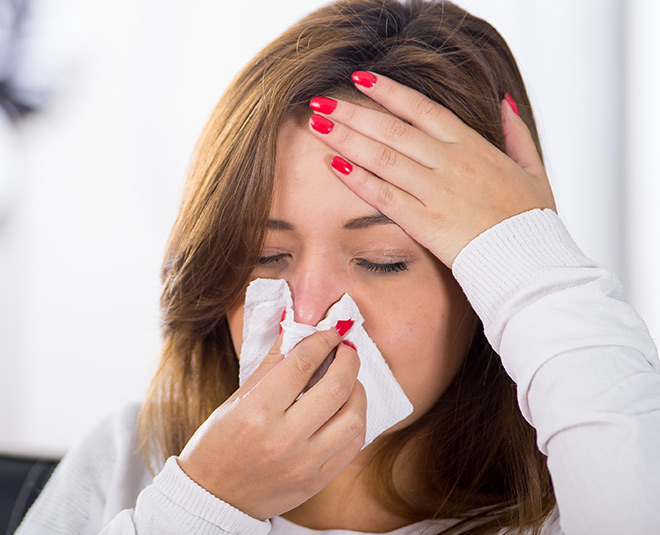As COVID-19 cases continue to rise and seasonal changes trigger allergies, it’s easy to get confused between symptoms of COVID and hay fever, as they often feel quite similar. To help clear the air, we spoke to Dr Sathvik Jain (MBBS, MD), Physician at SDME Multi-Speciality Hospital, Ujire, who shared insights on how to tell the difference between the two. Understanding these key differences can help you seek timely medical attention and avoid unnecessary panic.
Hay Fever vs COVID-19: 5 Differences In Symptoms
Nowadays, it is becoming increasingly difficult to tell whether that runny nose, sneezing, or fatigue is just seasonal hay fever or something more serious like a viral infection. Since both conditions can share overlapping symptoms, especially in the early stages, knowing the differences is important for timely care and peace of mind.

Dr Jain says hay fever, or allergic rhinitis, is an immune response to allergens like pollen, dust, or mold. Despite its name, it is not caused by hay and does not cause a fever. Common signs include sneezing, nasal congestion, watery eyes, and noticeable itching around the eyes and nose symptoms that tend to flare up during specific seasons.
COVID-19, on the other hand, is a viral infection that primarily targets the respiratory system. In its early phase, it can resemble hay fever, mild fatigue, sneezing, or a blocked nose but it often escalates. Dr. Jain said, “Symptoms like muscle pain, persistent cough, high fever, and a general feeling of being unwell are more closely associated with COVID and help differentiate it from allergies.”
Another point of difference is the loss of smell. While hay fever can affect your sense of smell due to nasal inflammation and blockage, COVID-related smell loss is more sudden and intense, usually stemming from viral damage to the nerves involved in olfaction, Dr Jain told us.
Don't Miss:HMPV Vs Covid-19: Key Differences, Similarities, And Understanding The Risk Factors, As Per Doctor
Hay Fever vs COVID-19: Taste And Smell
If you suddenly can’t taste your morning coffee or notice your shampoo has no scent, despite your nose not being heavily blocked, it could be a strong warning sign of COVID-19. On the other hand, with hay fever, any change in smell or taste is usually due to nasal congestion rather than direct effects on your nervous system.

Hay Fever vs COVID-19: Precaution Tips
If you are experiencing symptoms and are not sure whether it's hay fever or COVID-19, the first step is to monitor how your symptoms evolve. For hay fever, over-the-counter antihistamines, nasal sprays, and staying indoors during high pollen times can provide relief.
Don't Miss:Yoga Sangam 2025: How To Register, Deadline, And All You Need To Know
However, if you notice signs such as sudden loss of smell or taste, high fever, body aches, or a persistent cough, especially without itchy eyes or sneezing, it is safer to isolate and get tested for COVID-19. Consulting a doctor in either case is essential for proper diagnosis and treatment.
Keep reading Herzindagi for more such stories.
Credits: Freepik

Take charge of your wellness journey—download the HerZindagi app for daily updates on fitness, beauty, and a healthy lifestyle!
Comments
All Comments (0)
Join the conversation